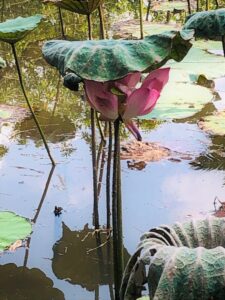“How might I start to sail with this?”

Dear Integral Meditators,
This week’s article explores an image that I use a lot in my coaching practice, and that also have found to be of enduring value in my own life challenges.
In the spirit of sailing rather than rowing,
Toby
This week’s article: Zen ergonomics – Sailing with, rather than rowing against life
Zen – Buddhism meets Taoism
Zen is a non-dual school of meditation, and a Mahayana Buddhist one. Being a non-dual school means that is aims at a direct perception of reality As It Is, rather than as our mind thinks it is. To be a Mahayana school essentially means that Zen is underpinned by the motivation and aspiration of universal wise compassion, aiming to help all living beings find a release or liberation from their suffering.
Zen also offers an ergonomic approach to life, meaning that it aims to help us relax into our challenges and tribulations, rather than fighting with them. By learning to gradually accept things as they are and as we find them, we can find ways to work with what is going on rather than fighting it. It is very practical and ‘earthy’ in a way that combines the ‘transcendence’ of Buddhist meditation with the nature-based ‘flow’ philosophy of Taoism.
Sailing – working with, not fighting against
Alan Watts often used the image of sailing rather than rowing to give a sense of how this works. If you have a particular situation you are facing, notice the way in which you are approaching it. Are you trying to fight to overpower it, or are you relaxing into it, trying to find a way of relating to what is going on that is skilful? Fighting with a situation is like being in a boat and trying to row against the wind – every stroke takes effort, you pit your strength and energy against the wind and every stroke takes toil. A ‘sailing’ approach on the other hand involves trying to catch the wind and work with it, to use the energy to help you. If the wind is against you, then a good sailor knows how to tack, or sail diagonally into the direction of the wind, so even if the situation is difficult or challenging, we are looking to find ways to use it rather than fight it!
Centering, putting down concepts, your self-concept & entering relaxing into the beginning
Before you think about what to do in a situation to sail rather than row, it’s good to simply be present to it. A few pointers for this:
- Center yourself in your body, in the moment. Try and feel the centre-line of the body, the mid-point between the front and back of the body, and the left and right halves of the body that runs from your crown to your perineum. Take a few slightly deeper breaths if you need to relax
- Put down thinking, clear your mind. If you can’t stop thinking, then a skilful way is to not think about the thinking; be present to thoughts without causing them to generate more thoughts (if that sounds a bit Zen, it’s because it is!)
- Notice and then put down your self-concept. Don’t just put down your thoughts, also notice you are carrying an idea of yourself into the situation; all the labels, roles and images you have about what and who you are
- Relax into the beginning. Meet your situation in the moment, the now, free from your ideas about it, and what it should or shouldn’t be. Try and resist the temptation to start seeking a solution or a fix, just take your time being present with it, and relaxing into that as best you can
From this position of relative center, presence and relaxation ask yourself the question, “How might I start to sail with this?”
The better you get at sailing, the more relaxed you become under pressure, the less exhausted you feel when you become tired, and the more you notice how many small ways there are to sail through your life challenges with a degree of enjoyment, pleasure and creativity!
Related articles: Not thinking about thinking – A Zen approach to non-conceptual awareness
© Toby Ouvry 2025, you are welcome to use or share this article, but please cite Toby as the source and include reference to his website www.tobyouvry.com
All upcoming classes & workshops
Ongoing on Tuesday’s & Wednesday’s (live & online), 7.30-8.30pm – Weekly integral meditation classes
Tuesday 2nd & 3rd September, 7.30-8.30pm, & then weekly – Integral Meditation from the Perspective of Zen – A 10 week series
Saturday 6th September, 5.30-6.15pm, & then weekly – Zen meditation Deep-dive – A 10 session practice series
Saturday 20th September, 5.30-6.30pm – Autumn equinox balancing & renewing meditation
Follow Toby on: LinkedIn, YouTube, Instagram
Integral Meditation Asia
Online Courses * 1:1 Coaching * Books * Live Workshops * Corporate Mindfulness Training *Life-Coaching * Meditation Technology





